
This month’s Industry Insider Interview is with Adria Goetz, a Senior Literary Manager at Martin Literary Management. In addition to earning a BA in English (with a creative writing emphasis) from the University of Washington, she graduated from The Columbia Publishing Course’s intensive coursework in all aspects of book, magazine, and digital media publishing.
Before moving into her current role, Adria worked in the Pierce County Library System’s Communications department, in addition to spending three years as an intern and assistant at Martin Literary.
These days, she lives in an old Victorian farmhouse in the Seattle area—which she dearly hopes is haunted with friendly ghosts—with her husband and two cats.
Adria represents a wide range of writing, including:
- picture books
- middle grade
- young adult
- graphic novels
- adult fiction (especially rom-coms, female-driven thrillers/suspense, and general fiction)
- quirky gift books
- Christian devotionals
Let’s share some links and get right to the interview!
RVC: I’ve heard rumors that you’ve got a secret weapon in terms of your agenting—the 5 in 5 Rule. Care to dish?
AG: Sure! The 5 in 5 rule is: if I can’t think of 5 specific editors I’d send a project to within reading five chapters of a manuscript, I pass. This is because I want to make sure that if I offer representation to someone, it’s because I love their work but also because I think I’m the right advocate for them. If I don’t have a good sense for which editors would be a good fit for a project, then I’m probably not the right fit for that writer and am better off cheering them on from the sidelines, rather than guiding their career.
RVC: What’s the picture book equivalent of 5 in 5?
AG: I think it’s the same general idea with picture books, in that when I’m reviewing a picture book submission, I really need to make sure that I have a strong sense for which editors are looking for that type of project. Most of the time with picture books, I can make that call at based off their pitch/description of the project in their query letter. If the concept excites me, then I’ll take a good look at the manuscript to review the writing.
RVC: What appeals to you most about picture books?
AG: I’m a very visual person and I’ve always loved art (my house is covered in art and wallpaper with lots of different patterns and textures), so I love that picture books are a very unique and specific form of visual storytelling.
RVC: What was the story of your first picture book sale?
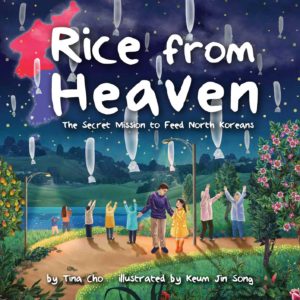 AG: Aw! The first picture book I ever sold was Rice from Heaven, which was written by Tina Cho and illustrated by Keum Jin Song, and sold to Little Bee Books. I represented the author, Tina Cho, who crafted a really interesting manuscript based on a real story of people in South Korea who fill giant balloons full of rice and float them over the mountainous border into North Korea, with the hope that they’ll be able to help feed the starving, impoverished people who live there. It’s a beautiful story of empathy and kindness.
AG: Aw! The first picture book I ever sold was Rice from Heaven, which was written by Tina Cho and illustrated by Keum Jin Song, and sold to Little Bee Books. I represented the author, Tina Cho, who crafted a really interesting manuscript based on a real story of people in South Korea who fill giant balloons full of rice and float them over the mountainous border into North Korea, with the hope that they’ll be able to help feed the starving, impoverished people who live there. It’s a beautiful story of empathy and kindness.
RVC: That sounds absolutely lovely.
AG: We submitted it to a small list of publishers, and we received good feedback, but it felt like something was missing. It was sort of a straightforward text at the time. I shared the manuscript with my colleague Clelia Gore [OPB interjection and horn-tooting here–we interviewed her back in 2020!] to get her perspective, and she encouraged us to rework the language to make it feel more lyrical. Once I gave that simple note to Tina, it was like she knew exactly what to do. She reworked it to make it more lyrical and poetic, and the text came to life. We shopped that new version and sold it pretty quickly to Little Bee Books.
Tina Cho was one of the first clients I ever signed, and she really, really took a chance on a brand new, very green agent. Since then, we’ve done a slew of books together: Rice from Heaven (Little Bee Books, 2018), Korean Celebrations (Tuttle, 2018), My Breakfast with Jesus (Harvest House Kids, 2020), The Ocean Calls (Kokila, 2020) which received three starred reviews, and an upcoming graphic novel-in-verse called The Other Side of Tomorrow, which will publish with HarperAlley in 2023. There will be many more in the future, too!
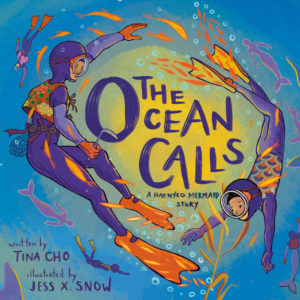 RVC: I know The Ocean Calls quite well. It even made it onto the OPB 20 Favorites of 2020 list!
RVC: I know The Ocean Calls quite well. It even made it onto the OPB 20 Favorites of 2020 list!
AG: It’s a very special book!
RVC: What about Rice from Heaven initially grabbed you in manuscript form?
AG: I loved that it showed an example of a tangible way to show kindness in a very conflict-filled world.
RVC: Let’s get into the agenting day-to-day stuff. You recently announced on Twitter that while you’ve never closed to queries before, you’re temporarily doing that. How bloated did you inbox get?
AG: That’s right, this is the first time I’ve EVER closed since I started agenting! It’s bittersweet because I love getting to review submissions every day. I’ve never felt like, “Ugh, my slush pile.” I still think it’s somewhat magical to wake up every morning and have a bunch of new stories in my inbox, waiting for me to read them. I only closed because I am taking a temporary medical leave while I recover from an upcoming surgery. (Nothing scary, for what it’s worth.) I already can’t wait to open back up, though!
RVC: I’ll definitely be sending you some warm, healing thoughts!
AG: Thanks!
RVC: In the past, you’ve given a workshop entitled “The Art of the Query Letter.” What’s the extra pizzazz you recommend people use to capture the attention of an agent or editor?
AG: I love teaching that workshop! The most important part of query letters is to make sure to include all of the basics: title, genre, reader category (meaning PB, MG, YA, etc.), word count, concise pitch, comp titles, and an author bio.
My hyper-specific “pro tip” is to use a specific subject line in your email. When I receive a query, the first place I usually see it is on my phone when I get an email notification. So if I see the subject line “Query” or “Submission” it doesn’t catch my eye and I’ll probably quickly shuffle it to my query folder to look at later. But if I were to see the subject line “Query for MG Fantasy – THE LIBRARY OF CURIOSITIES” I’m instantly intrigued, and probably going to stop everything I’m doing to take a look. And that did happen, by the way, when Jenny Lundquist queried me with The Library of Curiosities, which we are now shopping. 🙂
RVC: When you start reading queries again, what type of picture books would you be most interested in seeing? Mermaids? Raccoons? Ghosts? Karaōke? Something else?
AG: Yes to all of those! Also, my picture book trinity tends to be the three following categories: humor, Own Voices, and magical.
RVC: I find that writers often aren’t sure how to navigate a career that spans both the Christian and general marketplace. What advice do you have for them?
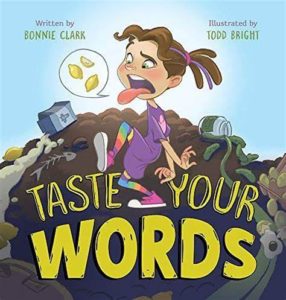 AG: I would say: learn how to tailor your projects for both markets. Some projects might be inspired by scripture, but if they don’t directly reference the Bible or the Christian faith, they could potentially appeal to the general market. It works the other way around, too. Rice from Heaven by Tina Cho and Keum Jin Song, Taste Your Words by Bonnie Clark and Todd Bright, and The Other Side of Tomorrow by Tina Cho and Deb Lee are a few examples of projects that were pitched to both markets.
AG: I would say: learn how to tailor your projects for both markets. Some projects might be inspired by scripture, but if they don’t directly reference the Bible or the Christian faith, they could potentially appeal to the general market. It works the other way around, too. Rice from Heaven by Tina Cho and Keum Jin Song, Taste Your Words by Bonnie Clark and Todd Bright, and The Other Side of Tomorrow by Tina Cho and Deb Lee are a few examples of projects that were pitched to both markets.
RVC: Do you have other clients who offer a good blueprint for this kind of wide-ranging career?
AG: Caryn Rivadeneira and Dave Connis both write for the general market and the Christian market, and juggle things beautifully, I think.
RVC: Speaking of advice, what’s the best piece of agenting advice you ever received?
AG: My boss Sharlene Martin has always said, “You can’t get what you don’t ask for.” And my colleague Clelia Gore has oftentimes told me, “Plead your case.” I keep both of these in mind when I’m negotiating for my clients, or advocating on their behalf. It’s amazing what you can get if you just ask for what you want, and explain why you should get it. It’s very intuitive and it’s basically Negotiating 101, but it’s stuck with me because I remember when I was a kid watching Trump on “Celebrity Apprentice” and just thinking… there’s no way I could ever be a businesswoman that negotiates because I thought you had to be a bully in order to be good at negotiating. It seemed so scary to me. Now that I’m in the real world as an adult, working with all female mentors and in a heavily female industry, I know that when it comes to negotiating, just being smart and respectful in negotiations can usually get you what you want.
RVC: I ask this a lot, but writers want me to keep asking, so here goes. What are your thoughts on illustration notes?
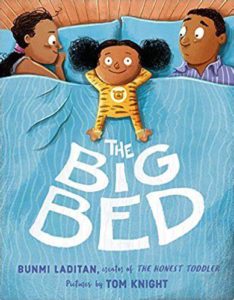 AG: I think a handful of illustration notes in a picture book manuscript is just fine. I encourage my clients to only use them when it’s something that is crucial to the storytelling, and can only happen within the illustrations themselves. It’s also a project-by-project basis. For example, comedic picture books that utilize dissonance between what the character is saying and what is happening in the art, like The Big Bed by Bunmi Laditan, might require more notes to clearly communicate what’s going on in the story.
AG: I think a handful of illustration notes in a picture book manuscript is just fine. I encourage my clients to only use them when it’s something that is crucial to the storytelling, and can only happen within the illustrations themselves. It’s also a project-by-project basis. For example, comedic picture books that utilize dissonance between what the character is saying and what is happening in the art, like The Big Bed by Bunmi Laditan, might require more notes to clearly communicate what’s going on in the story.
RVC: We’re on the same page here, it seems. We reviewed The Big Bed, as well!
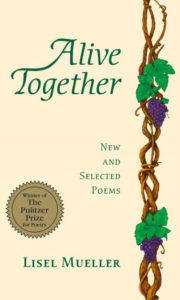 Now, here’s a weird curveball question—in your “My Favorite Books” board on Pinterest, you have Lisel Mueller’s Alive Together: New and Selected Poems. She’s one of my top five poets of all time because of how she (among other things) manipulates language and animates the world with wonder and sorrow in equal measure. I could go on and on about the bittersweet, shadowy depths of her writing.
Now, here’s a weird curveball question—in your “My Favorite Books” board on Pinterest, you have Lisel Mueller’s Alive Together: New and Selected Poems. She’s one of my top five poets of all time because of how she (among other things) manipulates language and animates the world with wonder and sorrow in equal measure. I could go on and on about the bittersweet, shadowy depths of her writing.
What do you like about her work?
AG: Oh my goodness, that collection of poetry is just pure magic, isn’t it? I pulled out my copy this morning and have been rereading all of the dog-eared and marked-up pages I have. I personally love reading poetry that feels very accessible, but still has depth to it, which is exactly how I would describe her work. You can see how much empathy and imagination and whimsy she had as a person, but as someone who was a young girl in Germany as the Nazis were rising to power, and then immigrated with her family to the United States, she experienced a lot of trauma and grief at a very formative time in her life, and you can see that in her work. So, her poetry has whimsy, but it also has grit, and I think that’s a really captivating combination.
P.S. It makes me so happy to think of people visiting that Pinterest board, so thank you!
RVC: Happy to help!
Now… last question for this part of the interview. What’s a current picture book project that you’re totally stoked about?
AG: Lou by Breanna Carzoo. It’s about a fire hydrant named Lou who has grown weary of being the neighborhood dog toilet. It’s hilarious, the art is incredible, and I’m so excited for it to publish with HarperCollins in 2022.
RVC: Hah–sounds great! But now it’s time for the SPEED ROUND. Blasty fasty question and zippy skippy answers please. Are…you…ready?
AG: Let’s do it.
RVC: Dinosaurs, dragons, or dolphins?
AG: Dragons.
RVC: Best place to get a Seattle cup of coffee?
AG: Jewel Box Café. Mostly because of the atmosphere—it has a very dark academia aesthetic, you feel like you’re having a cup of coffee in the Beauty and the Beast library.
RVC: If you had to be “trapped” in a picture book for a day, what book would you choose?
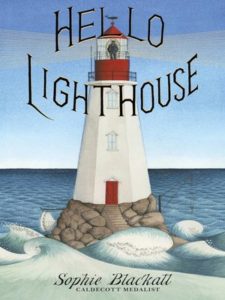 AG: Hello Lighthouse by Sophie Blackall! I’d love to be a lighthouse keeper.
AG: Hello Lighthouse by Sophie Blackall! I’d love to be a lighthouse keeper.
RVC: What’s a recent Christian picture book that really got your attention?
AG: I thought The Wonder That Is You by Glenys Nellist and Aurelie Blanz was beautiful.
RVC: What’s the One That Got Away?
AG: Oh, gosh! Just one? So many people have turned me down over the years! Well, there is one wonderful author/illustrator in particular who comes to mind, but I won’t mention her by name. She signed with an incredible agent though, so I really don’t blame her!
RVC: Your picture book philosophy in five words or less.
AG: Every child deserves a mirror.
RVC: Thanks so much, Adria! This has been fun.



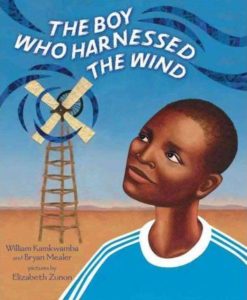
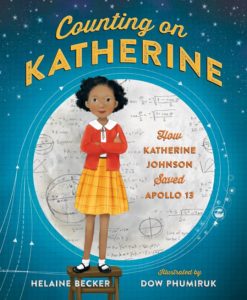
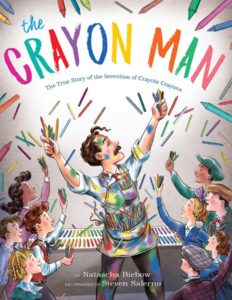
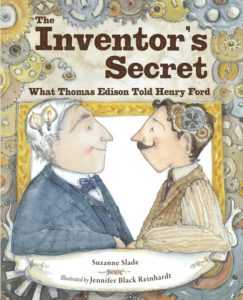
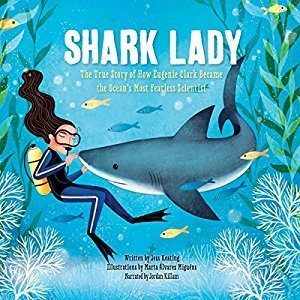
 June’s Author Interview is with English zoologist and writer Nicola Davies, who was one of the original presenters for the terrific
June’s Author Interview is with English zoologist and writer Nicola Davies, who was one of the original presenters for the terrific 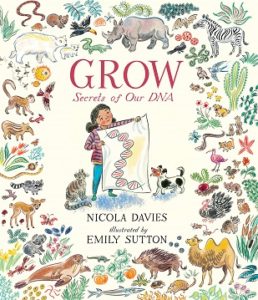
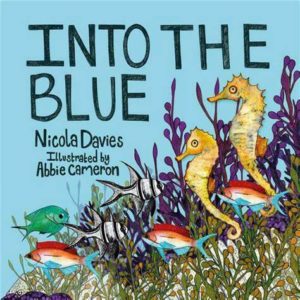
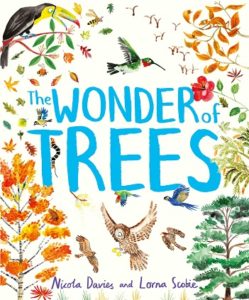

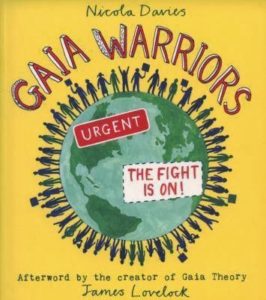
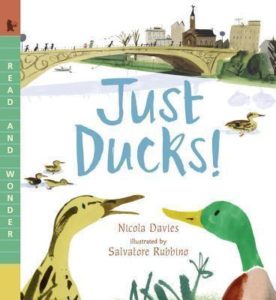 st Ducks!
st Ducks!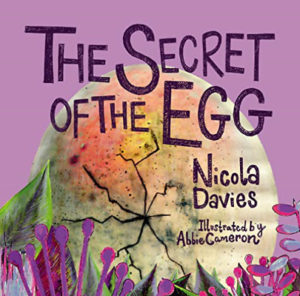
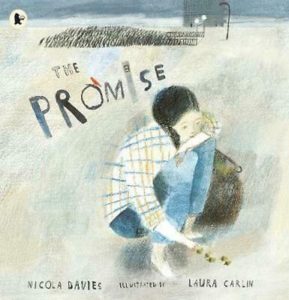
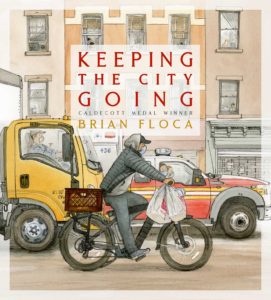
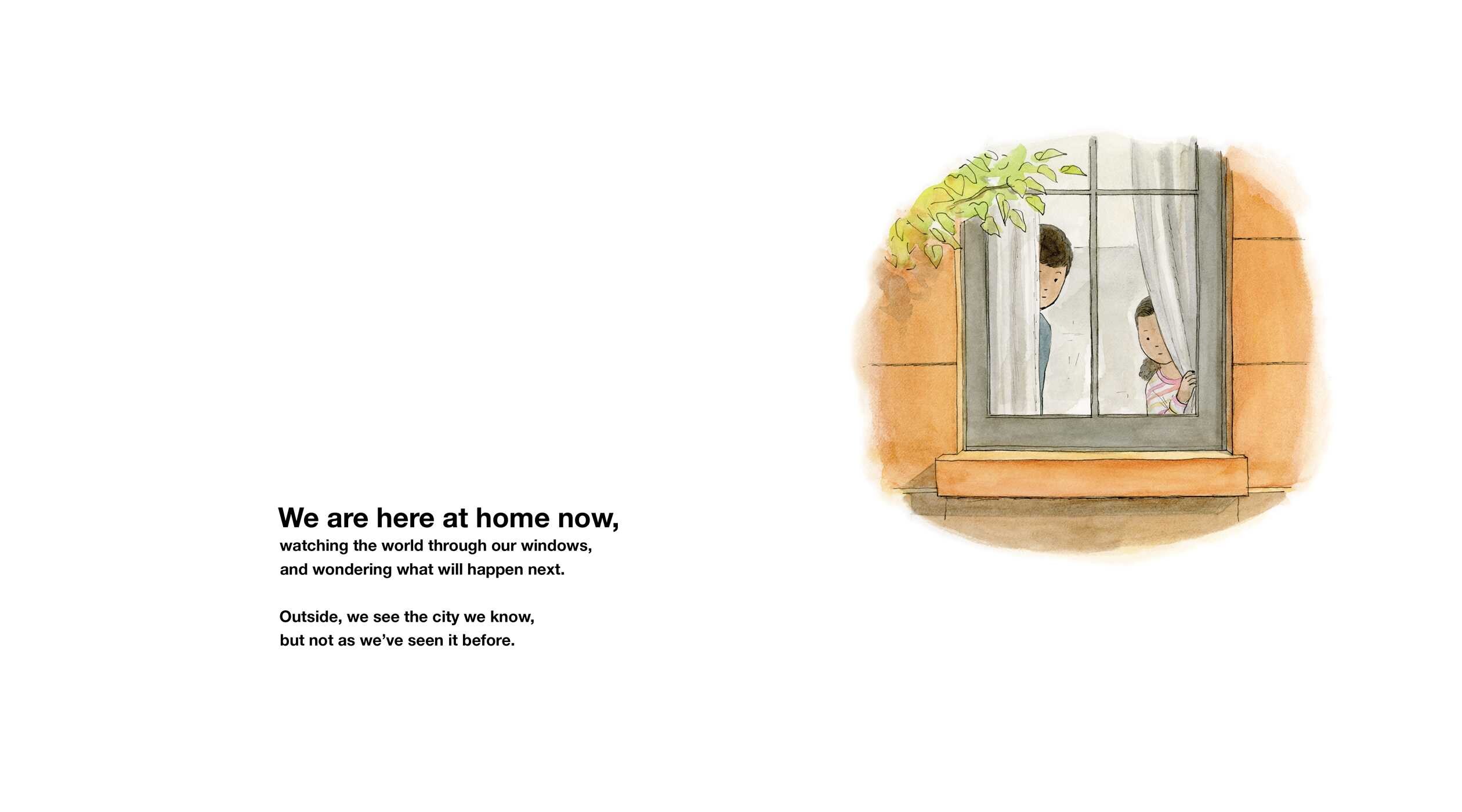
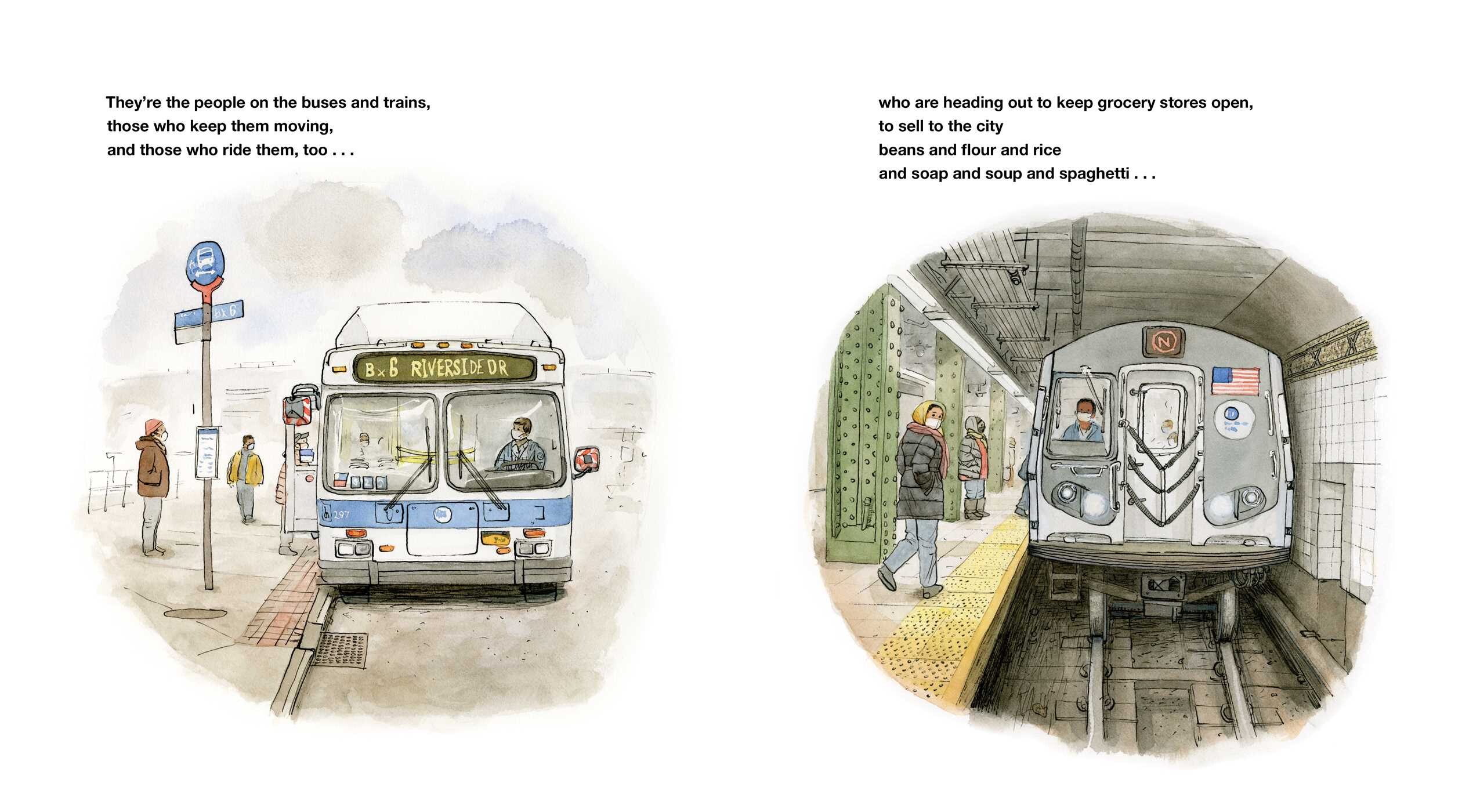
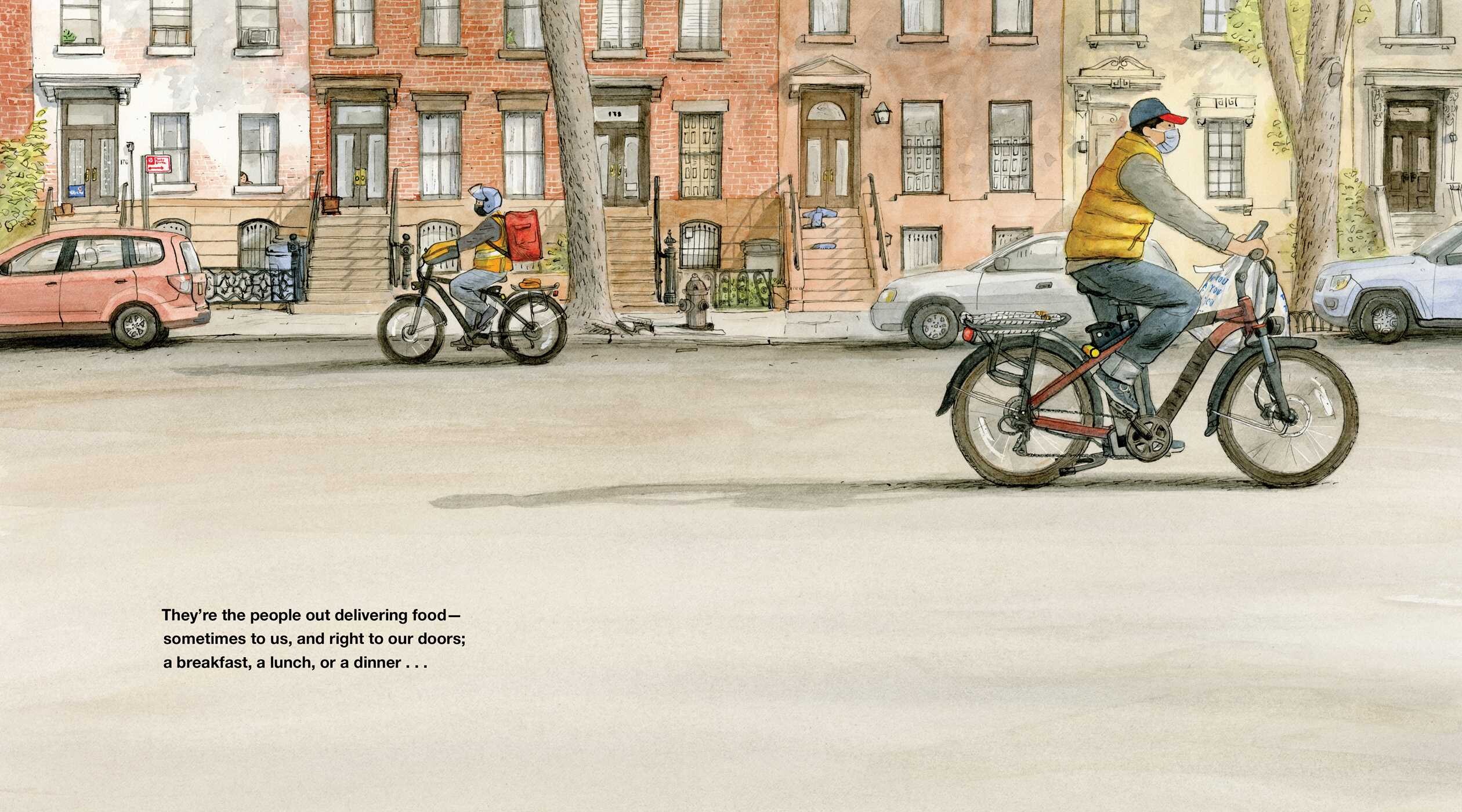
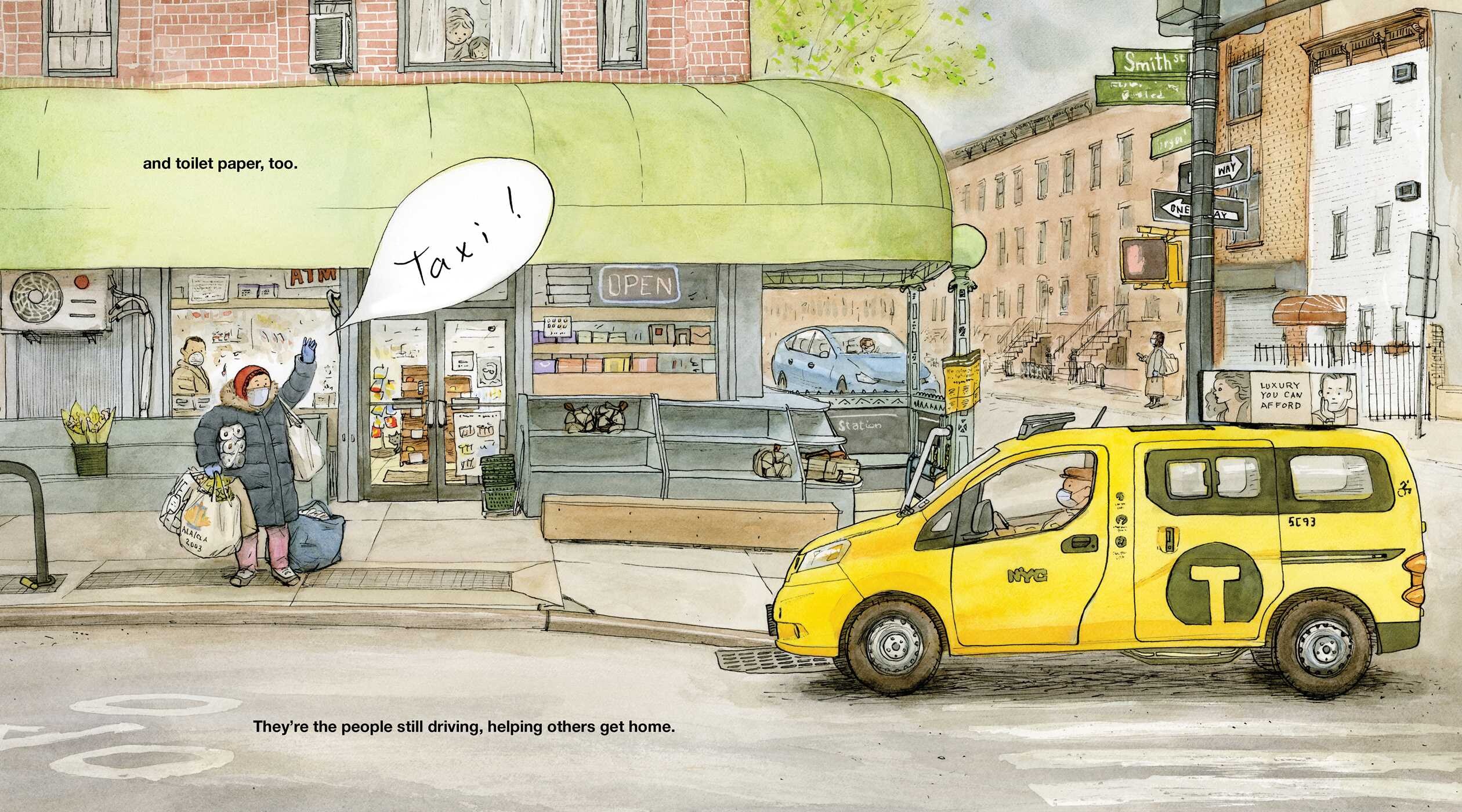
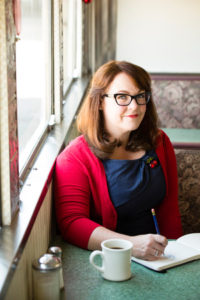 Kelly Light lives in Amherst,
Kelly Light lives in Amherst,